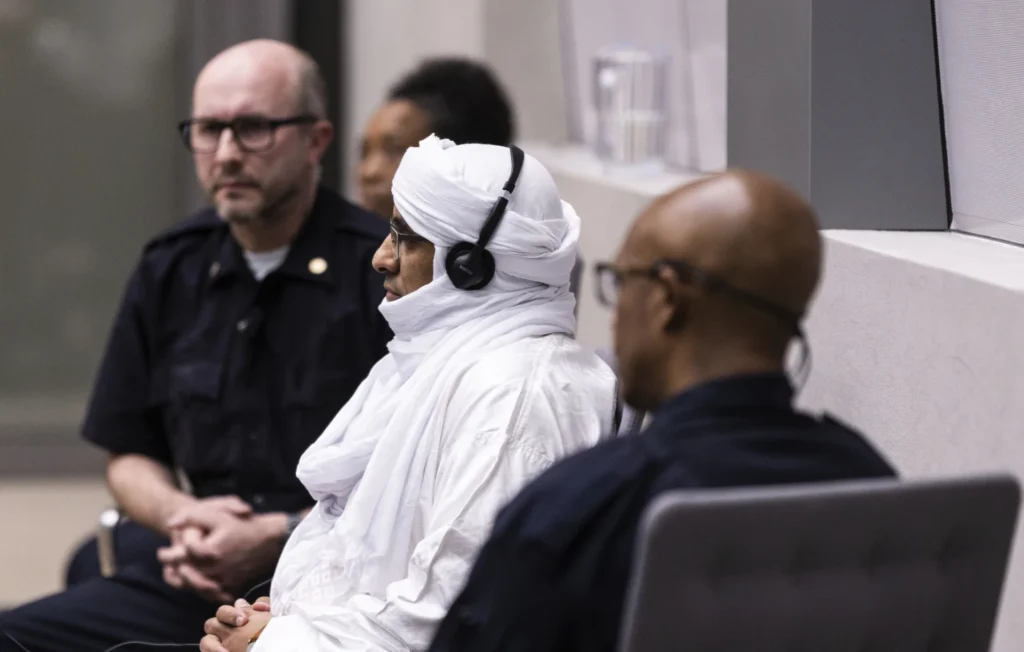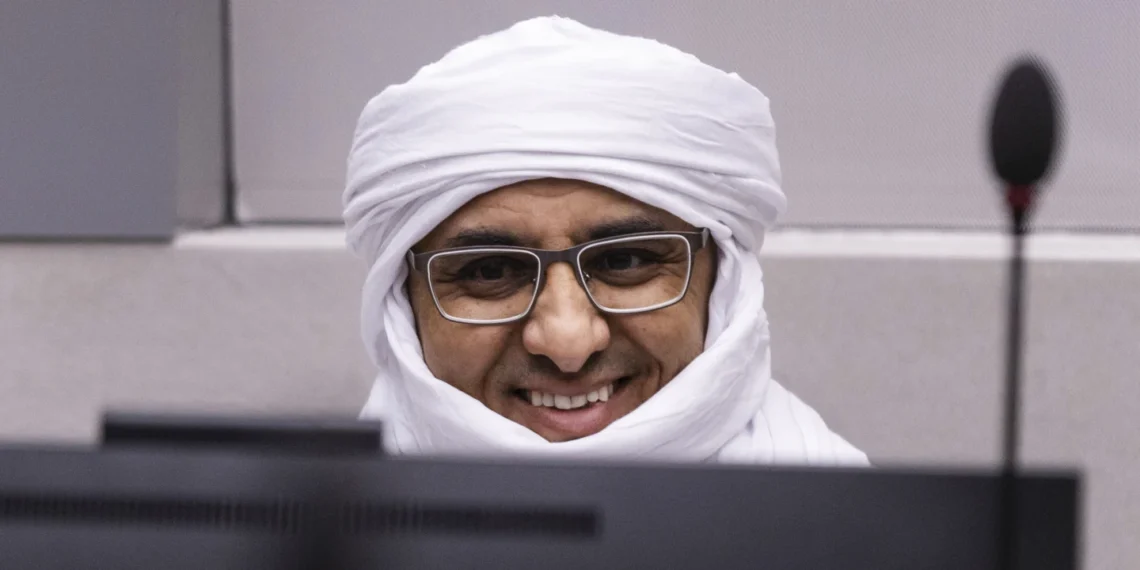The International Criminal Court (ICC) has sentenced Al Hassan Ag Abdoul Aziz Ag Mohamed Ag Mahmoud, a leader of the al-Qaida-linked Ansar Dine group, to 10 years in prison for war crimes and crimes against humanity.
The sentence, delivered on Wednesday, November 20 marks a significant chapter in the pursuit of justice for atrocities committed in Timbuktu during the 2012 extremist occupation of northern Mali.
Al Hassan, 48, was convicted in June of torture, religious persecution, and other inhumane acts while serving as the Islamic police chief in the historic desert city. Presiding judge Kimberly Prost noted, “This regime and these acts had a traumatic impact on the population of Timbuktu.”
Appearing in traditional white robes, Al Hassan remained impassive as the sentence was announced at the court in The Hague. His conviction underscores the brutal reign of Ansar Dine, which implemented extremist measures during its control of Timbuktu.
The group’s power was eventually curtailed in 2013 following a French-led military intervention, though remnants of the insurgency continue to destabilize the region.
Mixed Reactions to the Verdict
The sentencing, however, has drawn mixed reactions from human rights advocates. Al Hassan was acquitted of charges related to the abuse of women, including rape and sexual slavery. While the court acknowledged that such crimes occurred during Ansar Dine’s rule, judges ruled there was insufficient evidence directly linking Al Hassan to these acts.
Nonetheless, the ICC found ample evidence to convict him of torture and cruel treatment. Victims were reportedly held in cramped, unhygienic cells and subjected to floggings. Despite his conviction, Al Hassan has maintained his innocence.
His defense lawyer, Melinda Taylor, argued that as a member of the Islamic police force, he was compelled to enforce the rulings of an Islamic tribunal. “This is what the police around the world do,” Taylor said during the trial.
Both the prosecution and defense have appealed the decision, leaving the case’s ultimate resolution uncertain.

Limited Time Remaining in Custody
Al Hassan’s 10-year sentence will be reduced by the time he has already served. In ICC custody since March 2018, he has approximately 3.5 years left to serve.
This case is the ICC’s second prosecution related to Ansar Dine’s occupation of Timbuktu. In 2016, Ahmad Al Faqi Al Mahdi, another group member, was sentenced to nine years in prison for destroying mausoleums and a mosque door in the city, acts that deeply scarred Timbuktu’s cultural heritage.
The verdict highlights the ongoing instability in Mali and neighboring countries Burkina Faso and Niger, which have battled insurgencies for more than a decade. These conflicts, driven by groups linked to al-Qaida and the Islamic State, have devastated local populations and displaced millions.
In recent years, military coups in all three nations have led to dramatic shifts in alliances. French forces, once pivotal in combating extremism, have been expelled, with ruling juntas instead turning to Russia’s Wagner Group for security assistance.
Timbuktu, a UNESCO World Heritage site renowned for its ancient manuscripts and mausoleums, became a symbol of resistance against extremist brutality.
Ansar Dine’s occupation subjected the population to harsh interpretations of Islamic law, with severe punishments meted out for perceived infractions.
Mining Disputes Add to Mali’s Turmoil
Mali’s troubles extend beyond conflict. On Tuesday, an Australian mining company agreed to pay $160 million to Mali’s junta to settle a tax dispute. This came just over a week after the company’s CEO and two employees were detained.
The arrests, along with the detention of four Canadian company employees in September, have amplified scrutiny of Mali’s foreign-dominated mining sector, a critical component of the nation’s economy.
As Mali grapples with its complex challenges, the ICC’s sentencing of Al Hassan represents a step toward accountability but also underscores the ongoing struggle for justice and stability in the region.





















